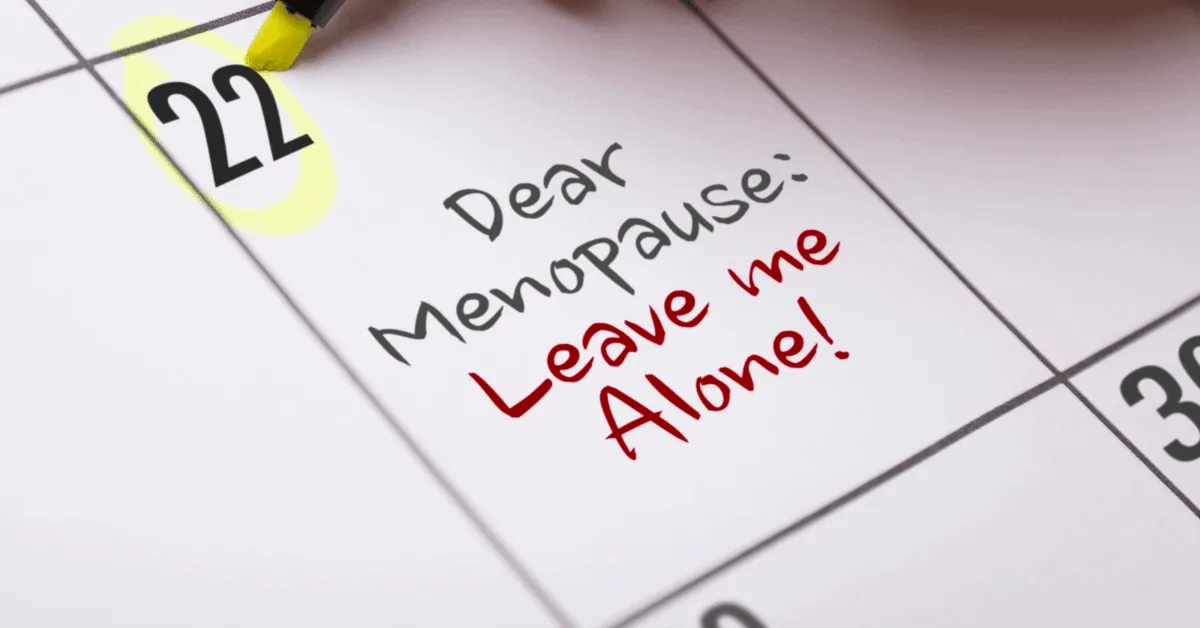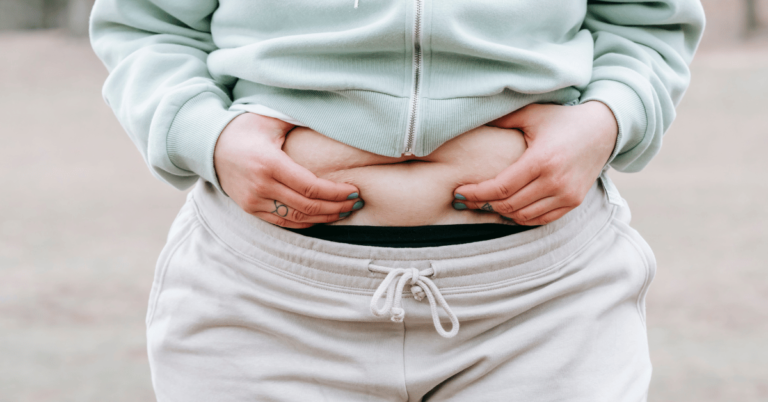Top Causes Of Menopausal Weight Gain And How You Can Overcome It
This post may contain affiliate links, including from the Amazon Services LLC Associates Program, meaning I receive a commission for qualifying purchases made through these links, at no cost to you. Read my full disclosure for more info.
Menopause begins with the end of a woman’s menstrual cycles. It usually happens when a woman is over the age of 45, and is defined as a beginning when a woman has gone a full twelve months (one year) without a menstrual period.
The symptoms of menopause are well known: hot flashes, brain fog, headache, mood changes, vaginal dryness, bloating, and, unfortunately, weight gain and increased body fat, are especially common with the average woman – without changing anything in their diet or life style – gaining an average of 4 to 6 pounds during the menopausal transition.
This excess weight gain is for many women one of the hardest things to face about menopause, particularly if they took pride in their physical appearance.
These body changes happen even if you’re exercising regularly and eating healthy. Many women can even become distraught over this weight gain because it can seem like no matter what they do, they still gain weight.
Menopausal weight gain is generally attributed to four factors:
- Hormonal Imbalances
- Stress
- Toxins
- Poor Sleep
How Menopause Causes Weight Gain

Hormonal Imbalances
A woman’s reproductive hormones change dramatically with the onset of menopause: estrogen and progesterone decrease; follicle-stimulating hormone (FSH) and luteinizing hormone (LH) increase.
These hormonal changes are the primary sign of menopause and one of the main reasons for increased weight gain; as estrogen levels decrease during this time, the body attempts to hold on to that little estrogen by boosting fat storage around the mid-section. In addition, under-active thyroid and insulin resistance, both of which contribute to raised fat storage space, are likewise symptoms of menopause.
Stress
What makes anxiety one of the major culprits for many health issues, including menopausal weight gain, is that it results in high cortisol levels and adrenal exhaustion.
This makes the body go into what is sometimes referred to as “survival mode,” and the cortisol receptors in the abdominal area store fat. Excessive stress and anxiety also set off unhealthy food cravings. The body compensates further by launching neuro-hormonal elements that put you deeper into survival mode, leading to inflammation and weight gain.
Toxic Substances
The buildup of toxins in the body is another contributing factor to menopausal weight gain. Toxic substances are everywhere – in the food we eat, the water we drink, and the air we breathe.
This hazardous overload not only damages the liver but likewise the digestive system track, both of which play crucial roles in preserving the body’s health and weight.
Poor Sleep
Sleep loss is another negative effect of menopause most women face. Menopause-related hormone imbalances cause night sweats, which seriously affect sleep quality.
Changes in neurochemical equilibrium arising from low serotonin have a negative impact on mood, while lower melatonin degrees impact sleep. These changes also raise the hormone ghrelin. This hormone is produced by enteroendocrine cells of the gastrointestinal tract, especially the stomach. It is often called a “hunger hormone” because it sends signals to the brain to increase food intake.
How To Fight Weight Gain Even With Menopause

While you cannot prevent menopause, you can combat some of its negative health effects with diet and lifestyle changes.
The primary things you should focus on to combat menopausal weight gain are:
- Increase Physical Activity
- Find Ways To De-Stress
- Get Lots Of Water
- Get Lots Of Rest
Increase Physical Activity
Regular exercise is an excellent way to promote weight loss and overall physical health. If you arent experienced with exercise, start small:
- Try to stand whenever possible.
- Walk to nearby stores instead of drive.
- Take up regular hiking.
- Go for a bike ride after dinner.
Once you get the hang of moving more consider adding in some exercises, you can start with giving our couch potato workout a shot, take a look at these essential exercises for people who spend a lot of time sitting, and if you want a complete diet and exercise routine consider Good Fun Health’s Six-Week Fat Loss Bootcamp available now.
Find Ways To De-Stress
Stress can be a killer. From increasing risk of heart disease, to elevated cortisol levels that are associated with increased abdominal fat – chronic stress is one of the worst symptoms of menopause.
Take the time pursue activities you enjoy, be that gardening, baking, or reading a good book. Treat yourself to a massage, a manicure, or a soothing bath and listen to calming music.
Try to avoid drinking coffee or other high-caffeine drinks as caffeine elevates level of the hormone cortisol, sometimes referred to as the “stress” hormone. If quitting that morning coffee sound like it will stress you out on its own, then don’t just drop it cold turkey, instead just try to slowly lower the amount of caffeine you get each day and try out some coffee alternatives.
Get Lots Of Water
The more hydrated you are the less likely it is that you will suffer from hot flashes or night sweats, both common concerns associated with menopause.
Drinking water also fills your stomach without adding excess calories, making you less likely to feel the need to snack throughout the day and thus helping you keep menopausal weight gain off.
Get Lots Of Sleep
Between the hot flashes and general discomfort, menopause can make it difficult to get a good nights sleep.
Sleep is essential to a healthy life, sleeping helps decrease cortisol and reduce insulin resistance to make weight management easier. Getting a healthy amount of sleep is also correlated with having a more positive mood which can make you more likely to exercise and eat healthy.
To help ensure you get a good nights sleep each night:
- Keep your room temperature cool.
- Make sure the room is quiet, or utilize a ‘white noise‘ system (You can buy a White Noise Machine at Amazon here).
- Reduce the use of stimulants and alcohol.
- Turn off screens (computer, laptop, smartphone, etc.) at least one full hour prior to your intended bed time.
The Bottom Line On Menopausal Weight Gain

Menopause is a part of aging, its a sign that you’ve lived a long and eventful life and should be warn as a badge of honor. Still, it comes with its own set of challenges and these include menopausal weight gain.
By following the tips laid out here you’ll be able to keep yourself healthy and fit even as you advance in age.
Let us know any tips you have that helped you deal with menopause and stop age-related weight gain in the comments below.








